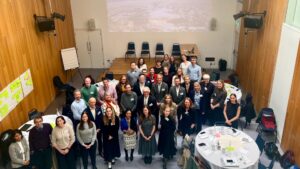Related Content
Fiscal Openness in Nordic+ Fact Sheet (June 2024)
Fiscal transparency has been an area of great achievement for members of the Open Government Partnership (OGP), including the Nordic+ region...

Four Steps Towards Fiscal Openness
The OGP Nordic+ group met in April 2024 and again during Open Gov Week to discuss how to advance fiscal transparency and enhance participation in fiscal policy. From these discussions, four key lessons emerged, each illustrated with practical examples from various countries.
Denmark Action Plan Review 2023-2025
This product consists of an IRM review of the Danish 2023-2025 action plan. The action plan comprises five commitments. This review emphasizes its analysis on the strength of the action plan to contribute to implementation and results. For the commitment-by-commitment…
Denmark Action Plan Review 2023-2025 – For Public Comment
In 2024, the Independent Reporting Mechanism (IRM) published the Action Plan Review for Denmark's fifth action plan. The report provides a technical review of the action plan’s characteristics and the strengths and challenges the IRM identifies to inform a stronger…

